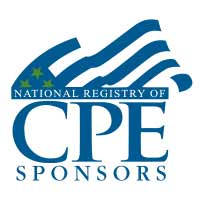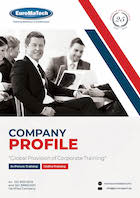
An Intensive 10-day Training Course
Managing the Cash Cycle
Accounts Receivable and Payable Best Practices
- Format: Classroom
- Duration: 10 days
- Language: English
- Accredited: CPE, KHDA Certified training courses
CLASSROOM DATES
INTRODUCTION
This 10-day Managing the Cash Cycle training course will provide a leading edge forum for you to significantly improve your working capital management skills. You will gain a comprehensive range of very practical and highly effective tools and approaches that can be immediately implemented upon your return to work.
By attending this EuroMaTech training course, delegates will understand:
- The importance of credit to the company and the economy
- The “cost of credit” and its impact on company profitability
- Practical steps that reduce bad debt losses and “uncollectible” debtors
- How to use different tools and techniques to maximize cash collection effort
- How to effectively manage cash and working capital to reduce costs and improve cash flow
- How leading companies from across the globe are achieving best practice in Accounts Receivable
- The importance of the accounts payable function with regard to its links with the supply chain and cash flow
- The integrated systems of purchase order processing, stock (inventory) control, purchase ledger and cash payments and their links with the general ledger
- How to effectively manage cash and working capital to reduce costs and improve cash flow
- The impact of risk and uncertainty on the business and its impact on accounts payable and cash flow
- How leading companies from across the globe are achieving best practice in Accounts Payable
This 10-day training course, comprises of two parts, as detailed below:
Module 1 - Accounts Receivable
Module 2 - Accounts Payable
Each module has been developed distinctly, such that it can can be attended as an individual 5-day training course. However, for optimum training outcome, participants are encouraged to attend Module 1 and Module 2, as a complete 2-week training course.
TRAINING OBJECTIVES
- Work effectively with the fundamentals of accounts payable, accounts receivable, financial accounting and the supply chain
- Understand and apply the fundamentals of effective transactional management systems
- Review and comment on payment methods and cash management
- Understand the need to incorporate risk and uncertainty into transactional processing and cashflow management
- Identify best practice across all industries by examining case studies from across the globe
WHO SHOULD ATTEND?
This EuroMaTech training course provides a user-friendly environment to develop the knowledge and techniques related to both accounts receivable and accounts payable that are valuable for:
- Finance Executives
- Accountants
- Others who are working within Transactional Finance, Accounts Payable or Accounts Receivable process or who wish to develop a practical toolkit to complement their existing professional or technical skills
This 10-day Managing the Cash Cycle training course is also ideal for those wishing to develop their understanding of how Working Capital efficiencies can make a significant improvement to profitability or you may already be employed in any of these functions within the business.

TRAINING METHODOLOGY
The instructor engages all of the delegates, both in the presentation of the material and the training course sessions, so that everyone leaves with a working knowledge of the material and the ability to use them immediately.
TRAINING SUMMARY
Working capital management influences both a firm’s risks and its expected returns. After completing this EuroMaTech training course, you will be aware of the risk return trade-offs that are implied in financial forecasting, know the process of financial planning, the importance of managing cash inflows and outflows, how to finance short-term assets, and make the right decisions on financing and investment for your firm.
TRAINING OUTLINE
Module 1: Accounts Receivable:
Day 1: An introduction to Accounts Receivable
- Working Capital and Cash Management
- Understanding “the cost of credit”
- The ‘order to cash’ process
- Understanding “risk” in “credit”
- Accounts Receivable and effective customer service
- Identifying under-performing areas to increase customer satisfaction
Day 2: Customers and trading terms
- Terms of trading
- Tools and techniques of financial analysis: ratios; trends; common size analysis
- The best performance measure – cash or profit?
- Financial distress and the Altman’s Z score-type analyses
- Trend analysis
- Value added analysis of financial statement
Day 3: Developing effective strategies to maximise cash collection
- Identifying effective “pre-delinquency” collection campaigns
- Defining “post-delinquency” activities
- Customer sensitive collection strategies
- Collection techniques and letter cycles
- Appropriate internal and external escalation steps
- Using work flow management to maximize collector performance
Day 4: Practical collection tools and techniques
- Eliminating barriers to payment
- Recognizing excuses and delaying tactics
- Providing solutions to non-payment
- Telephone collection techniques
- Negotiation skills for successful collections
- Building relationships with customers
Day 5: Managing the Receivables Ledger
- Developing effective internal relationships to maximize performance
- Setting targets and tracking performance
- Managing information that dazzles
- Defining meaningful KPI’s
- Latest Developments in Accounts Receivable
Module 2: Accounts Payable:
Day 1: Accounts Payable, Financial Accounting and the Supply Chain
- Accounting and financial information: Accounts Payable in context
- Sources of finance
- The supply chain
- Financial position and financial performance
- Cash flow and Working Capital
- Why is cash flow so important?
Day 2: Achieving World Class in Accounts Payable Processes
- Defining Best Practice in AP
- Moving beyond P2P
- Managing Risk
- Principles of Best Practice
- End to End AP Process
- Defining the issues in Accounts Payable
Day 3: Improving Invoice Processing and Operational Management
- Invoice Handling and Approval Processes
- Verifying invoice data
- Paying “low value” items
- How to avoid duplicate payments
- Making the best use of staff time: limiting telephone calls to AP
- Does Petty cash management belong in Accounts Payable?
Day 4: Harnessing Technology in Accounts Payable Processes
- Master Vendor File Management – getting it right from the start
- Travel & Entertainment
- Policy management
- Cash advances and employee reimbursement
- Process improvement through imaging and workflow
- Using the internet for AP effectiveness
Day 5: Making the Payments and Maintaining the Relationships
- Communications & Customer Relations
- Payments status information for vendors and internal customers
- Improving Procure to Pay(P2P)Cycle
- Payments and Payment Solutions: Accounts Payable or Treasury?
The programme will conclude with an interactive case study exercise to allow participants an opportunity to apply the learning of the week and define a practical solution.
CALL ME BACK
Do you wish for us to conduct this course at your premises?
Discover In-House Solutions
ACCREDITATION

EuroMaTech is registered with the National Association of State Boards of Accountancy (NASBA) as a sponsor of continuing professional education on the National Registry of CPE Sponsors. State boards of accountancy have final authority on the acceptance of individual courses for CPE credit.

Euromatech is a Knowledge & Human Development Authority (KHDA) approved training institute in Dubai, licensed and approved to deliver training courses in the UAE.
The KHDA is the regulatory authority in the UAE, that oversees administering, approving, supervising, and controlling the activities of various education providers in the UAE. We are proud of our commitment to ensuring quality training courses and status as a KHDA-approved training provider.
Taught by our team of highly qualified trainers, our KHDA approved training courses will provide you with an enriching learning experience and practical knowledge that will help you future-proof your career and support professional development within your organisation.

